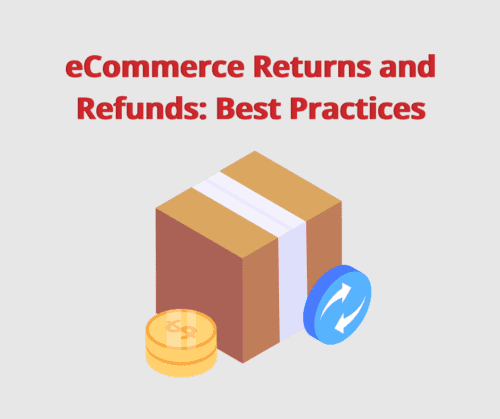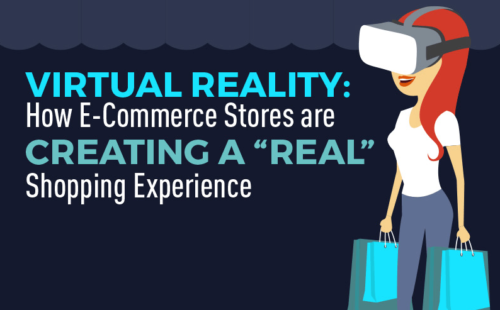One of the first decisions when you start your eCommerce website is the look and feel of your online store. To decide on the best eCommerce platform for your site, you need to know how much time and money you have to spend on customization. Also, what interface will make it easy for your customers to shop? And you need clarity on how much you want to dig into the backend tech for your storefront.
The answers to these questions will dictate how your store operates and what technology will work best for you. Thankfully, eCommerce platforms can make these decisions easier.
Red Stag Fulfillment will update this post regularly to keep information relevant and as accurate as we can. The most recent version was created on January 10, 2023.

What is an eCommerce platform?
An eCommerce platform is a software platform you can use to build your online storefront. The best eCommerce platforms put the tools you need to run your store together in one convenient dashboard. Platforms make it easy to set up a branded online retail website, with drag-and-drop builders and all the elements you need to create product listings, a shopping cart and checkout process, and more. Some platforms even connect you to shipping and eCommerce fulfillment options.
Picking the right eCommerce platform is an essential step for your online retail business. It’s crucial to understand which platform will provide the best springboard for your online sales success.

Marketplace or platform: What’s the difference?
The words “platform” and “marketplace” are thrown around, sometimes interchangeably, in eCommerce, so it’s critical to understand the difference. An eCommerce platform is an application that sellers can use to build online stores, usually with at least some level of customization and independent operation, though platforms may have rules and requirements for sellers.
A marketplace is an online storefront operated by a third party where sellers can list their products for sale. With a marketplace, you don’t control the look of your product listings, and you have to follow the (often strict) guidelines of the operator.
If you primarily sell in an eCommerce marketplace like Amazon, you might not need to build your own online shop. However, your own branded eCommerce site gives you a chance to showcase your products. And an eCommerce platform can make it simple to create your site.
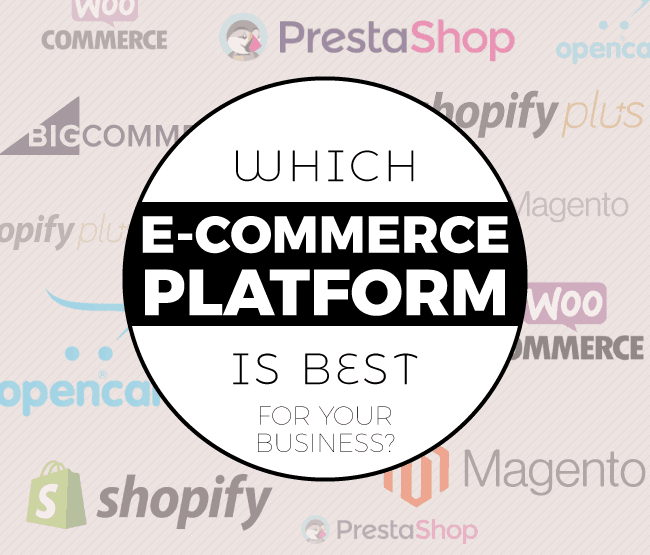
Factors to consider when choosing an eCommerce platform
ECommerce platforms come in many different flavors. Some cater to small startups, and some are geared toward larger enterprises. Some are great for online retail on a budget, while others have lots of bells and whistles — and a higher price tag. You can find platforms that require technical know-how to get up and running, and others that are plug-and-play for those without CSS and HTML fluency.
Another factor to consider when choosing your eCommerce platform is whether the apps and plugins you’ll need to run your store are compatible. Software to help you manage inventory, marketing, and other functions will add power to your online business and automate many routine tasks. Each platform has an app store with add-ons compatible with its software, so check there to see if your favorite software is available.
The eCommerce platform that works best for you will depend on how you run your business. Factors to consider include:
- How big is your enterprise?
- What types of products do you sell?
- What market do you want to reach?
- Are you a startup or an established retail brand?
- Does the business also include brick-and-mortar locations?
- What’s your budget for marketing and sales?
In addition, you’ll want to consider the price of the eCommerce platform. Some platforms, like WooCommerce, are free (though expect some startup costs), while most charge monthly fees. In addition, some platforms charge fees and commissions on sales. Make sure you understand the one-time and ongoing charges before you commit to an eCommerce platform.
Here are some of the most popular eCommerce platforms. These platforms are a good place to start your research.

Best ECommerce Platform for Startups
When you’re just getting started, you might want a free or low-cost eCommerce platform. However, you also want room to expand your online storefront. Your eCommerce site might be a part-time venture at first, but you should prepare for success. Choose an eCommerce platform that gives you room to grow.
The eCommerce platforms in this section offer free or low-cost plans with enough features to get you started. Each will let you customize as you grow — for a price.
Here are two eCommerce platforms that work well for startups.
WooCommerce
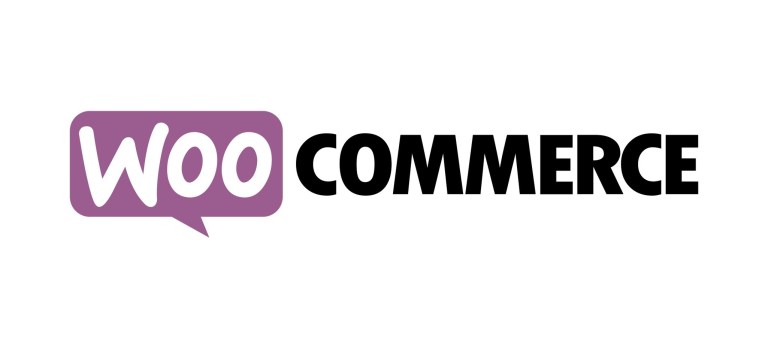
Overview
WooCommerce is a free WordPress plugin. It allows you to run an online store on the WordPress platform with additional paid features you can add on. WooCommerce is a great option for your startup to manage your online store from a WordPress site. It’s one of the most popular eCommerce platforms, with 3.4 million installations worldwide.
WooCommerce is affordable and robust. It allows you to make sales, process secure payments, manage inventory and shipping, and calculate sales taxes. WooCommerce works well for retailers with revenues from zero (startups) to $500,000. If interested, you can learn more about our WooCommerce fulfillment services.
Cost
WooCommerce is a free plugin you can download and install for WordPress sites. You can get the basic Storefront WordPress theme and many extensions for free. Many themes are priced at $39, and you can pay up to $129 for a Storefront theme. It’s a good idea to also leave room in your budget for some paid extensions to improve the functionality.
When you set up a WordPress site, you also need to buy a domain name and pay for web hosting. Make sure you understand your hosting options and charges.
WooCommerce hosting
If you’re interested in premium hosting for your WooCommerce store, consider Kinsta. Kinsta is a premium managed hosting provider specializing in WordPress hosting. Kinsta’s infrastructure is heavily optimized for eCommerce solutions such as WooCommerce and is ready to handle traffic surges. With its extended set of features, high-security network, and speed-obsessive architecture, you don’t have to worry about your site’s uptime.
Kinsta includes WooCommerce-specific features like auto-scaling, server-level caching, automatic backups, and optional add-ons. This WordPress hosting platform comes with a one-click auto-installer for WooCommerce in the custom-built dashboard. It’s a great choice for eCommerce retailers who want to build a WooCommerce shop.
WooCommerce also partners with well-known WordPress hosting providers such as BlueHost and WP Engine to offer hosting packages starting at $3.99 per month. That’s an excellent place to start your WooCommerce journey.
Features
WooCommerce offers seamless integration with WordPress. As a result, you can sell whatever you want worldwide. In addition, it includes the following features:
- It’s mobile-friendly. WooCommerce allows you to turn your store into a mobile app if you choose.
- WooCommerce comes with the ability to scale, to an extent.
- You retain control of all your data.
- You can rest assured because Sucuri Security audits WooCommerce. Audits ensure that it complies with coding best practices and standards.
- You can use PayPal, Stripe, Square, Amazon Pay, and many other payment gateways.
- WooCommerce offers marketing and reporting functions.
Benefits
Obviously, one of the best features of WooCommerce is the low cost. And it’s a great solution for businesses already running on WordPress (43% of the web is WordPress sites).
WooCommerce is also easy to customize, with a huge collection of themes, plugins, and extensions. You can insert your logo, color scheme, and other branding onto a pre-made theme. Depending on your skills with HTML and CSS, you can also change the code and add widgets.
Plugins allow you to add a whole range of functions, including accounting, order fulfillment, and analytics. WooCommerce also allows you to choose your own backend options. These include shipping providers and accounting software like Quickbooks or MYOB and ERP applications such as Netsuite.
Customer Support
WooCommerce offers customer support through several channels. You can submit a ticket to get help from customer or tech support. In addition, you get plenty of resources to troubleshoot problems yourself. WooCommerce support includes an FAQ section, Knowledge Base, and WooThemes Documentation. There is also an active WooCommerce Community and a selection of training videos.
Drawbacks
Since WooCommerce is a plugin, you need to set up the other parts of your website yourself. This includes web hosting, domain name registration, and WordPress site building. You may have a learning curve if you’re unfamiliar with WordPress.
In addition, you might need to switch eCommerce platforms if your store grows beyond WooCommerce’s capabilities. If you hope to grow your store from a startup to a large enterprise, the best eCommerce platform for you might be one that offers more growth potential, such as Shopify.
Shopify

Overview
Shopify offers several plans for small to medium-sized businesses and it’s one of the best platforms as it doesn’t require tech knowledge to operate. You’ll find all the features you need to launch an entire eCommerce store in one place.
There’s a good reason why Shopify is used by over 1 million worldwide online retailers. There are many current Shopify reviews all over the web to help you decide if it is the right one for you.
Shopify works well for retailers in the startup phase. Here, a startup is defined as annual revenue of up to $5 million. When your business is in this range, you don’t need the advanced capabilities of the more expensive platforms. Shopify also offers ShopifyPlus for bigger businesses (more on that below). The option to grow with Shopify is a big plus of this eCommerce platform.
Cost
The cheapest plan is Starter, which is $5 per month after a free 3-day trial. However, if you want a full-featured Shopify storefront, Shopify Basic for $29 per month is a better starter package (and, as of this writing, you can get your first three months of Basic for $3). The standard Shopify plan is $79 monthly, and Shopify Advanced is $299. Shopify offers a free 14-day trial for each of these plans.
In addition, Shopify offers enterprise-level plans through Shopify Plus, so this platform gives your online store plenty of room to grow.
Features
Shopify has all the features you need for setting up your store, including the shopping cart, reports, analytics, and flexible payment options. You also get social media integration and marketing tools. You won’t need third-party applications with this platform, though you can add functionality through tools available in the Shopify App Store.
Shopify also offers mobile access and allows you to control your backend from an app on your smartphone.
Benefits
Shopify is full-featured and includes a content management system and customer relationship management tools. Since it is one of the largest eCommerce platforms, many 3PLs have direct Shopify fulfillment integrations.
Your data is hosted on Shopify’s own secure servers, with daily backups, and the platform keeps business and customer information secure as well. It offers 24/7 monitoring and Payment Card Industry (PCI) compliance.
All Shopify plans also include Shopify Retail, so you can combine in-person with online sales while managing a single inventory and taking payments through a single portal.
Customer Support
You can get 24/7 customer support via phone, email, and live chat. There is also one-on-one help via Shopify experts. These are pros who can help you with design, coding, and marketing. You also have self-help options. The Help Center offers an Intro to Shopify with detailed documentation to get you started. You also have access to discussion forums with the Shopify community. In addition, Shopify Learn offers free online classes to teach you everything about building a successful eCommerce business..
Drawbacks
It can be challenging to change the theme templates, and if you don’t know Shopify’s Liquid programming language, you may need to hire a web developer to make modifications.
Best eCommerce platform for small business
Either WooCommerce or Shopify is worth considering for any small business, not just startups. Here are some additional platforms to consider for your small business.
OpenCart
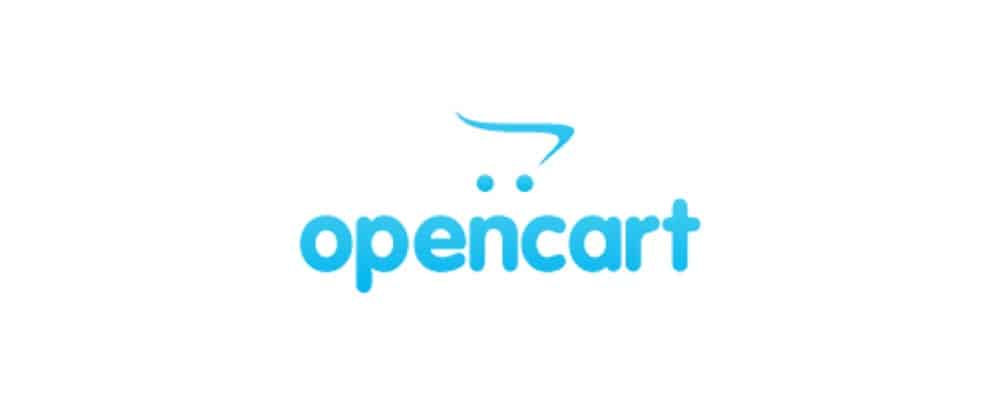
Overview
OpenCart is a simple, open-source shopping cart system that’s free to download and install. In addition, the eCommerce platform comes with plenty of themes and extensions.
OpenCart can be hosted on any server that meets its system requirements. This platform is best if you are tech-savvy and don’t need custom features.
Cost
This eCommerce platform is free to download and install and there are many free extensions for basic functionality, such as adding a payment gateway. However, hosting, extensions, and templates may cost you extra.
Features
OpenCart is developed in PHP, a scripting language with a large user base and many extensions created by its developer community. OpenCart runs on object-oriented programming and MVC architecture and can power a store of virtually any size and integrate with a range of services, including order fulfillment. Those interested can learn about our OpenCart fulfillment here.
Benefits
OpenCart is fast, a huge benefit in an online environment when seconds of delay can cost you eyeballs on your site. In addition, you can choose from over 10,000 commercial or free themes and modules with this platform. The fact that it’s actively developed and open source means that it stays updated. And OpenCart has good documentation, a responsive admin UI, and an active user community.
Customer Support
You can turn to OpenCart’s huge community with issues or questions or pay for one-time or ongoing dedicated support.
Drawbacks
The fact that OpenCart is an open-source eCommerce platform has some downsides. Amateur developers may build extensions and themes that are not secure, so you run the risk of downloading a bad theme for your site. OpenCart is also lightweight, which makes it fast but also limits its functionality. It has only about 20% of the features you’ll find in more robust solutions, such as Magento (more on Magento below).
PrestaShop
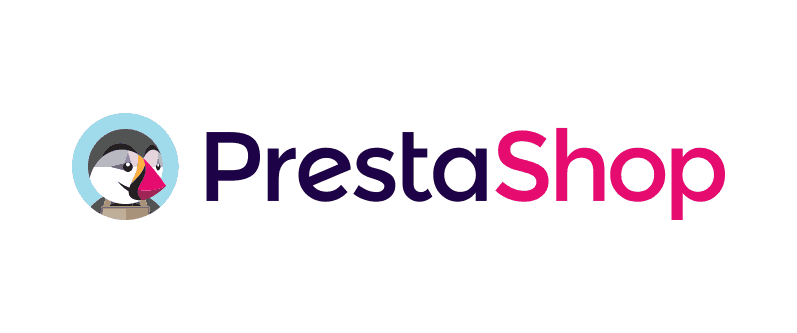
Overview
PrestaShop is a highly customizable eCommerce platform. Its basic features are free to use, so it’s a good choice if you’re bootstrapping your business, and the ease of setup makes this eCommerce platform perfect for smaller businesses. There are lots of themes, templates, and modules available for purchase, and PrestaShop is also available in 40 languages. Those interested in PrestaShop fulfillment services can visit our dedicated integrations page for more information.
Cost
PrestaShop is free to download and install. However, themes, extensions, and hosting will cost you. PrestaShop templates range in price from $95 to $313, but you can find free themes from third-party sites.
Features
PrestaShop is a good out-of-the-box solution for small businesses. It includes product listing, payments, catalog management, and tax systems. You can customize your shop, and it also offers user-friendly back-office features, SEO, and more.
Benefits
PrestaShop is a good solution if you aren’t tech-savvy because it’s easy to install and has an easy-to-use backend system that connects seamlessly with third-party eCommerce fulfillment services. It is relatively easy to customize and has a lower monthly cost than other systems like Magento.
In addition, it has lower system requirements than some other platforms, so it could save you money on software upgrades. And PrestaShop provides a tool to determine if your server meets its system requirements.
Customer Support
PrestaShop has a helpful (and free) community support forum, and it’s a low-cost solution as long as you don’t need professional support. You can buy support packages ranging from short-term help to complete startup assistance. Support starts at around $95, but packages can range from about $280 to $1,600.
Drawbacks
PrestaShop may leave larger businesses opting for another solution. It has fewer out-of-the-box features than many other eCommerce platforms, and the SEO functions and customer support are limited.

Best ECommerce Platform for Large Business
As your business grows, you will want an eCommerce platform that can handle your expansion. Fortunately, even eCommerce platforms built for high sales volumes sometimes come with a free plan. For example, Magento, one of the most widely used eCommerce platforms, has a free basic-level plan.
To get the most out of bigger eCommerce platforms, you may need to hire a developer because you’ll get off to a better start with expert help. You also might need an IT professional when you want to make changes to your online store, so factor that cost into your budget for an enterprise-level eCommerce platform.
Shopify Plus

Overview
Shopify Plus is different enough from Shopify to merit a separate review from basic Shopify. Shopify Plus provides enterprise-level capabilities without high costs or lengthy onboarding. This hosted solution is an excellent choice for medium- to enterprise-level businesses that want to increase online sales.
Cost
The Shopify Plus plan starts at $2,000 a month and goes up from there, depending on your sales volume. The base price is $24,000 per year, and on larger sales volumes, the platform charges a small fee (0.25%) on each sale, with annual fees of up to $40,000.
Features
Shopify Plus is simple to customize, so you can easily modify this eCommerce platform to match your brand image. In addition, you can integrate email marketing and customer rewards programs. You’ll find apps for these functions and many more in the Shopify App Store.
Shopify integrates with offline sales through the Shopify POS system. The platform is also PCI compliant. That means your customer data is protected by bank-level security.
Benefits
Shopify Plus allows you to launch quickly with migration support, and there is no charge to migrate your store. The platform promises that your store will be up and running within 90 days. And you can create an unlimited number of stores under your Shopify Plus account for an additional $250 per store.
The interface is user-friendly and easy to navigate, and compared to other eCommerce platforms, it works better with third-party applications. In addition, the large community of users and developers adds new features often.
Customer Support
Dedicated Plus account managers cater to your business needs, and you have access to 24/7 phone and email support. In addition, you get access to Shopify Plus Academy, which offers webinars on a wide range of topics, including how to migrate to Shopify Plus.
Drawbacks
Shopify Plus is primarily an eCommerce platform, so it lacks content management functions, which can cause problems if you want to publish your website and eCommerce store on the same subdomain.
In addition, the backend integration is limited: Anything you add must work with Shopify’s API. You may be able to get help with this from an account manager, but you are still limited by Shopify’s hosted eCommerce platform. And, of course, platform lock-in is also an inherent risk with regular Shopify.
Differences from Shopify
Shopify Plus differs from other Shopify plans in several ways:
- It has no transaction fees if you use Shopify Payments.
- It includes advanced analytics and reporting tools.
- You get white-glove onboarding, personalized customer services, and 24/7 configuration and application support.

nopCommerce

Overview
nopCommerce is an open-source eCommerce platform powered by the latest ASP.NET technologies. Unlimited customization plus flexibility, scalability, and high security make it a perfect fit for middle- and large-sized businesses. It’s also easy to set up load balancing and web farms to boost your site performance.
Such features as multi-vendor, multi-store, and omnichannel selling come out-of-the-box, which turns nopCommerce into all-in-one B2B eCommerce software. Thanks to multi-language and multi-currency support, it’s ready to scale worldwide. And using the Web API plugin, you can build a headless eCommerce system.
Cost
The platform is free to use. Its built-in functionality is enough to create a store of any level — from SMB to enterprise. However, you can expand its features at a reasonable cost. For $250, you can remove the “powered by nopCommerce” link in the footer. To install more stylish themes, you’ll have to pay from $49 to $249.
Features
The platform supports all popular payment and shipping methods, including one-page checkout and anonymous online checkout. To grow your business and increase brand awareness, there are advanced SEO and marketing features, and the platform is PCI compliant (but not certified). GDPR compliance is easy with nopCommerce, and the out-of-the-box functionality can be expanded with 1,500 integrations.
Benefits
nopCommerce users have full control over the source code of this cross-platform solution and can deploy nopCommerce however they want — on Windows, Linux, or macOS. Compatibility with CRM, ERP, WMS, and PIM systems helps the platform expand together with your business growth, so you won’t need to migrate to another platform. Unlike other solutions in this list, nopCommerce has no transaction fees, monthly expenses, or hidden costs.
Customer Support
nopCommerce offers a profound knowledge base and documentation, including a training course developed by the core team. Since nopCommerce has an active community, you can ask for advice and solve your issues on the official forum. There are also certified developers and partners ready to help. If needed, you can also purchase premium support for three months or a year at $499 and $999, respectively.
Drawbacks
Because nopCommerce is designed to be customized, you’ll need the assistance of professional web developers to tailor your eCommerce website to meet your needs.
Best ECommerce Platform for Multichannel ECommerce
Most eCommerce businesses sell on more than one channel to reach as many consumers as possible. You might sell on Amazon Marketplace, eBay, and an eCommerce platform. In addition to BigCommerce, consider Shopify, PrestaShop, or Magento to manage all your sales channels in one dashboard.
BigCommerce

Overview
BigCommerce is a good match for high-earning brands that have up to $100 million in online sales. It has all the tools necessary for a big storefront but with modest upfront costs. BigCommerce supports multichannel sales on sites like Amazon, Google Shopping, and less-known sales channels like Shopzilla and Bizrate.
Cost
BigCommerce has a free trial to get you started and pricing starts at $29.95 per month for a standard plan. The plus plan is $79.95 per month, while the pro plan costs $299.95, and there are also enterprise-level options available with pricing by custom quote. You can save on the plus and pro plans if you pay annually instead of monthly.
All plans come with free hosting and unlimited bandwidth, and BigCommerce doesn’t charge transaction fees if you use your own merchant account. The platform also has a selection of free website templates, plus paid templates ranging in price from $150 to $399.
Features
BigCommerce comes with customizable templates that you can tweak to suit your branding. You make changes in a development environment so that draft updates won’t glitch your live store.
It has built-in tools to maximize conversion, helping customers find their way around your site quickly. The platform also includes a one-page checkout that lets customers speed through purchases and a back end that can easily integrate with enterprise-level applications such a BigCommerce 3PL services.
BigCommerce is targeted at mid-sized businesses, particularly brands looking to grow quickly beyond $1 million in annual sales. Therefore, it has lots of tools to suit the needs of growing enterprises.
Customer Support
BigCommerce offers support to transition from other eCommerce platforms and has dedicated account managers to help big businesses maximize sales. Priority support helps all customers get fast assistance.
Drawbacks
BigCommerce has few free templates and the premium templates are more expensive than on other eCommerce platforms. In addition, if your sales exceed the maximum allowed in your plan, you will automatically get upgraded and charged more.
Best eCommerce platform for drop shipping
Running a drop shipping eCommerce business means you have to coordinate your sales with delivery from your dropshipping suppliers. In addition to Adobe Commerce (formerly called Magento), WooCommerce and OpenCart work well for dropshipping.
Magento
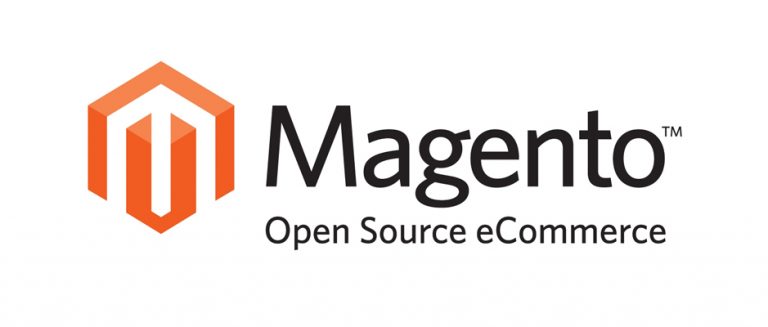
Overview
Adobe Commerce has a focus on scalability and growth, with a back end that caters to enterprise-level needs. The platform is suitable for businesses with annual revenues of $0 to $50 million and above and is a great venue for online retailers who do dropshipping.
Cost
Magento Open Source has no monthly subscription fees — you can download and use it for free. Adobe Commerce Pro and Managed Services are paid packages, with pricing depending on your sales, starting at around $22,000 per year. However, even if you choose the free Magento Open Source, expect to pay a developer to help you set up this code-heavy platform, with a price tag that can range from a couple of thousand dollars to six figures.
Additional costs include paid plugins and extensions to this eCommerce platform to increase functionality. These range in price from free to several hundred dollars. You’ll also need to pay for hosting and transaction fees.
Features
If you have no coding knowledge, you can still customize your Adobe Commerce/Magento store with thousands of templates built by designers. There’s also an integrated shopping cart, and you can use secured payment options from popular payment gateways.
The back end of this platform offers streamlined order management, product management, and mobile commerce functions. You can market your site effectively using the extensive SEO tools. The platform allows you to offer promotions and discount codes and up-sell or cross-sell your products next to reviews and social sharing.
The Magento/Adobe Commerce platform gives your customers access to their purchase history and package tracking, and with the Magento 2 Custom Shipping Module, you can further refine how products reach your customers. You can also manage multiple eCommerce sites from one account.
Benefits
Magento is a highly popular platform, so you have access to robust resources to set up your eCommerce site, including direct integration for fulfilling orders via a Magento 3PL service. You can also use third-party software and servers to gain more options and flexibility. Independent developers continuously improve the eCommerce platform, so you can usually find any extension or plugin you need.
Customer Support
Magento Open Source doesn’t offer support, but you may find help in the Adobe Commerce Knowledge Base. Paid licenses come with limited support, so this eCommerce platform works best for companies that have access to in-house or on-call IT support.
Drawbacks
Magento is not the best option for those who aren’t tech-savvy. The platform is not impossible to use if you’re an absolute beginner, but it’s not the best choice for startups without robust IT resources.
The Adobe Commerce/Magento platform may be too much for a smaller business to manage, but the investment can pay off for bigger enterprises.
Other popular eCommerce platforms

Wix is a drag-and-drop website builder with many templates that let you easily create an eCommerce website. And, while the builder is free, you will want a premium plan to support your eCommerce store. Premium plans for business and eCommerce cost between $16 and $59 per month and include a custom domain, secure payment portals, and customer support.

Salesforce has developed a platform that will surely grow in prominence. The Salesforce Commerce Cloud has taken over Demandware, specializing in mobile eCommerce, and put its muscle behind developing its capabilities.

How to Determine a Site’s ECommerce Platform
One way to figure out what eCommerce platform might work well for your business is to learn which platforms your competitors and online businesses that you admire use. A great tool for this research is BuiltWith.com. Simply enter the URL of a shopping site, and BuiltWith will show you all the software that runs the site, including the eCommerce platform.

Find the best eCommerce platform for your business
There are pros and cons to every eCommerce platform. Ultimately, your choice will depend on your company’s size and unique needs, and you may migrate platforms as your online retail business grows. Like almost every business decision, this one calls for research and planning.
One of the most important features of an eCommerce platform is a user interface that’s intuitive and simple to use because your time is too valuable to waste on technical glitches.
Checklist of eCommerce platform questions
Here are some eCommerce platform questions to help you narrow down your choices:
- What are your monthly sales? Use projected sales if you’re just starting your business.
- Does the platform integrate for easy eCommerce fulfillment? (This one will depend on your 3PL as well as your platform of choice).
- What level of sales growth do you expect over the next two to five years? Choose an eCommerce platform that will continue to work for you through the near-term growth of your business.
- How much of your budget can you spend on setting up and maintaining your online retail site? Can you carry a loss at first? For how long?
- How much of your time can you afford to spend setting up your eCommerce site? How does that balance against the cost of hiring someone to do the work for you?
- What features are most important to your customers?
- What makes your favorite online shopping sites easy to navigate? Which eCommerce platform gives you the best options to include these features?
- What makes your favorite eCommerce shops fun to visit? Which eCommerce platform gives you the best options to build these click-worthy features into your site?
- How tech-savvy are you? Do you need a plug-and-play eCommerce platform? Or would you like to customize your site yourself?
- What kind of technical help might you need? If you often need help to deal with technical issues, choose an eCommerce platform that offers robust support.
If you still have questions about eCommerce platforms or fulfillment, feel free to reach out to Red Stag Fulfillment. We ship over 3 million packages a year for a range of customers, and we’re happy to put our experience to work to help you overcome your eCommerce challenges.
More about eCommerce platforms:






